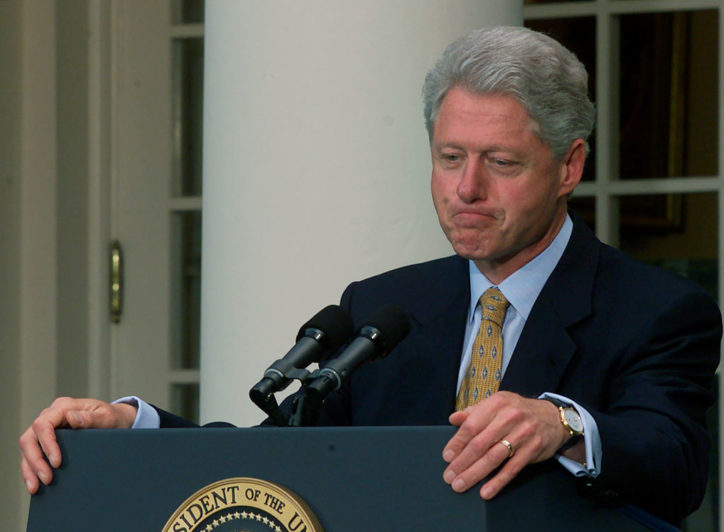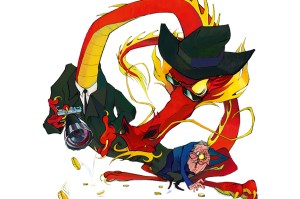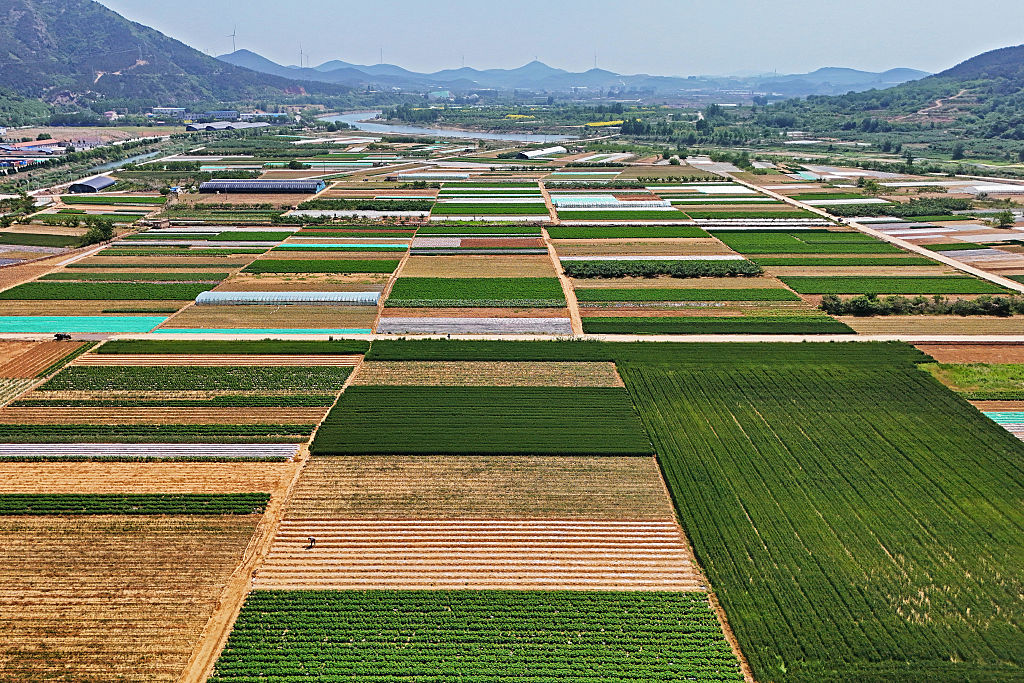‘This is a good day for America,’ said President Bill Clinton on May 24, the Year of Our Lord 2000. ‘In 10 years from now we will look back on this day and be glad we did this.’ Clinton was talking about the House of Representatives’ vote to award normal trade relations to China. And he was right.
By 2010, despite the crash of 2008, the knowledge class still largely considered the decision to support China’s entry into the World Trade Organization as a great boon. China’s rise had turbocharged globalization and made us all richer — never mind the stupefying sovereign debts. Labour unions had opposed it, but leaders and corporations were still enthralled by the gargantuan consumer markets.
Fast forward another decade, however, and the US-China Relations Act, Clinton’s last significant legislative accomplishment, looks like a monumental mistake: the moment when America, perhaps the greatest superpower of all time, rolled over and invited its demise.
Globalization, it turned out, was not a faultless blessing. It slowly morphed into something quite different — in many circles today, the term is merely a euphemism for letting China win. As we approach the anniversary of that vote next month, perhaps Americans should mark it in a solemn way: a day of national mourning to commemorate their nation’s eclipse.
The COVID-19 crisis has exposed China — the way it fiddles the truth, the extent to which it is willing to cover up its misdeeds, the way it uses financial might to silence dissent. Beijing’s much-vaunted ‘peaceful rise’ has masked an unpleasant reality. That mask has slipped — funny, in a way, given that we apparently now must all wear masks.
Now Americans see quite how dependent they are on an autocratic and aggressively mercantilist regime. The awful truth becomes incontrovertible. Western supply chains are hopelessly reliant on China, especially for critical national security goods, such as pharmaceuticals. ‘Never again should we have to depend on the rest of the world for our central medicines and countermeasures,’ said White House director of trade Peter Navarro, a well-known China hawk, recently. The Trump administration has been criticized and praised for its tougher approach towards Beijing. The question now is — is it all too little too late?
America began outsourcing technology and manufacturing to east Asia back in the 1960s. But the millennial admission of China, and its enormous population, into what Clinton called the ‘rule-based international system’ was the global game-changer — largely because China never had to play by international rules. Not only did China offer huge amounts of cheap labour, it also adapted its financial system to capitalize on western investment, including through currency manipulation and other dubious practices, which gave it an edge over other poor manufacturing countries.
‘By this agreement, we will also export more of one of our most cherished values, economic freedom,’ promised Clinton. ‘Bringing China into the WTO and normalizing trade will strengthen those who fight for the environment, for labor standards, for human rights, for the rule of law.’
***
Get three months’ free access to The Spectator USA website —
then just $3.99/month. Subscribe here
***
Clinton was never much good at honoring vows. The truth is that China wasn’t put under any sustained pressure to embrace western democratic standards — too much money was at stake for such concerns. Westerners contented themselves with bleating occasionally about human rights, while China was allowed strictly to control its vast internal market — allowing western companies in but only under its terms.
Beijing also ensured that strong independent Chinese companies did not emerge as a counterpoint to its centralized power, as Japan and other Asian countries had done with Toyota and Hyundai and so on. Huawei, the telecoms giant, now pretends to be the exception to the rule. It is really a state-backed giant.
So China became the factory of the world and the global economy warped. In 2020, we see the consequences and they aren’t good. ‘A lot of Americans died for freedom, and a lot of sacrifice should not go unredeemed,’ said Clinton, on that fateful day. ‘We owe it to them, to their children and to our children and grandchildren to give the world a chance to build a better and a different future.’ Then he went and gave it all away.

























